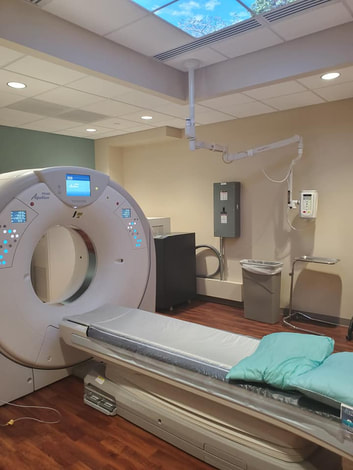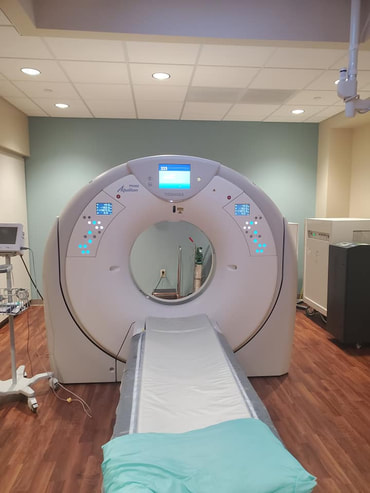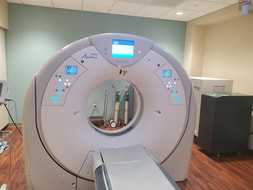
To actively engage my mission statement, "An ounce of prevention is worth a pound of cure," I share with you my heart scan field trip and results. While not perfect in my nutritional efforts, I have been motivated by the research and teachings of Dr. William Davis, Milwaukee cardiologist and heart surgeon. Ironically, Dr. Davis is an advocate for an "undoctored," approach to health and wellness. The more you clean up your diet, engage in regular activity, obtain adequate rest, and practice techniques to reduce stress; the less likely you are to require intervention by Dr. Davis or one of his colleagues. In fact, Dr. Davis' practices and the methods he utilizes to educate his patients, have significantly reduced his patients' needs for cardiac intervention. He focuses his work on preventing heart disease rather than treating its symptoms. His goal is to coach his clients to obtain a healthy and normal body weight, to maintain excellent health and wellness, naturally, without unnecessary pharmaceutical drugs.
In the early 2000's, Dr. Davis had an "ah-ha" moment when his mother had a heart attack. At that point he was doing eight or ten angioplasties, a day. Suddenly his mother suffered an acute coronary and died just months after she had undergone an angioplasty. This caused Dr. Davis to begin to question what could be done to prevent heart disease. His research and discoveries continue to be published in his series of Wheat Belly books plus his most recent book, Undoctored. One strategy Dr. Davis began to employ was the use of heart scans and he uncovered significant hidden heart disease in everyday people. The conventional answers of statin drugs, did not, in Dr. Davis' opinion, stop coronary artery disease; nor an aspirin; and neither did a low-fat diet. In fact, Dr. Davis concludes low-fat diets make it worse. Bloodwork suggests small LDL particles explode on a low-fat diet while HDL become smaller and less effective in protecting you. In addition, VLDL (very low density lipoprotein) particles that lead to heart disease are notably elevated as well as triglycerides on a low-fat diet. Dr. Davis concludes the grains we have been encouraged to eat is what has contributed to an increase of obesity, diabetes, high blood pressure, coronary artery disease, dementia, degenerative arthritis and cancer. There is a dramatic rise in these illnesses as our diets have shifted from the historical eating patterns of our ancestors. Currently, about 70% of our calories are from simple carbohydrates, mostly wheat and corn products; think of ultra-processed foods like pizza, pasta, cookies, donuts, cakes, tortillas, and pancakes. Rather than go into the extensive details of how the protein, wheat germ agglutinin, affects the digestive system through inflammation plus its associated wheat protein gliadin stimulates excess appetite by binding to opiate brain receptors, I will simply encourage you to visit Dr. Davis' website and social media pages. In addition, he has participated in numerous podcasts, and clearly articulates his views. He shares extensive information through Youtube and often hosts Facebook live candid conversations where he answers nearly all of the questions posed to him. And like most things in life, not everybody agrees, which is why I encourage you to do your own research. This test was one I ordered for myself after doing my research and understanding both the risks and benefits. It may not be for you.
In the early 2000's, Dr. Davis had an "ah-ha" moment when his mother had a heart attack. At that point he was doing eight or ten angioplasties, a day. Suddenly his mother suffered an acute coronary and died just months after she had undergone an angioplasty. This caused Dr. Davis to begin to question what could be done to prevent heart disease. His research and discoveries continue to be published in his series of Wheat Belly books plus his most recent book, Undoctored. One strategy Dr. Davis began to employ was the use of heart scans and he uncovered significant hidden heart disease in everyday people. The conventional answers of statin drugs, did not, in Dr. Davis' opinion, stop coronary artery disease; nor an aspirin; and neither did a low-fat diet. In fact, Dr. Davis concludes low-fat diets make it worse. Bloodwork suggests small LDL particles explode on a low-fat diet while HDL become smaller and less effective in protecting you. In addition, VLDL (very low density lipoprotein) particles that lead to heart disease are notably elevated as well as triglycerides on a low-fat diet. Dr. Davis concludes the grains we have been encouraged to eat is what has contributed to an increase of obesity, diabetes, high blood pressure, coronary artery disease, dementia, degenerative arthritis and cancer. There is a dramatic rise in these illnesses as our diets have shifted from the historical eating patterns of our ancestors. Currently, about 70% of our calories are from simple carbohydrates, mostly wheat and corn products; think of ultra-processed foods like pizza, pasta, cookies, donuts, cakes, tortillas, and pancakes. Rather than go into the extensive details of how the protein, wheat germ agglutinin, affects the digestive system through inflammation plus its associated wheat protein gliadin stimulates excess appetite by binding to opiate brain receptors, I will simply encourage you to visit Dr. Davis' website and social media pages. In addition, he has participated in numerous podcasts, and clearly articulates his views. He shares extensive information through Youtube and often hosts Facebook live candid conversations where he answers nearly all of the questions posed to him. And like most things in life, not everybody agrees, which is why I encourage you to do your own research. This test was one I ordered for myself after doing my research and understanding both the risks and benefits. It may not be for you.

I had originally scheduled my heart scan for March, however due to pandemic influences, rescheduled for June. Many Wisconsin hospitals offer this scan and through the Aurora Clinic in Germantown, Wisconsin, I paid $49 in cash to essentially track my plaque. (Yes, $49. No insurance, no doctor's order, just me calling the clinic and scheduling this test as I would call my stylist for a haircut!) This is a CT (a CAT scan device), and set in a specific way so that you get very low radiation exposure. Mary, the CT tech, has worked in the industry for 30 years. This fee is lower than what Dr. Davis predicted as he estimated most tests are between $100 and $150. This test took less than 5 minutes from set-up to completion. Mary attached 4 leads to specific areas of the chest which recorded my heart rate. The table elevates and progresses slowly until your heart is centered in this round cylinder (looks like a Hankerson's donut). The process is smooth and quiet. A robotic, sci-fi voice instructs you to hold your breath and the scan initiates. You hold your breath 3 different times to obtain the image and then you are done. You wear a robe and are covered with a light sheet throughout the test. For women, it is a million times better than a mammogram; it was relaxing!

The test was on Friday and I was informed a cardiac nurse would call me on Monday to explain the results. Within two hours however, I had the results posted to MyAdvocateAurora electronic chart. A heart scan gives you a score, a calcium score. Normal is zero. The calcium score is an index of total plaque and all its varied components including calcium, fibrous tissue, inflammatory cells, and soft plaque. It's an index of total plaque. The higher the score, the more plaque you have and the more plaque you have, the more likely it is to rupture. The primary goal of this test is not to detect a blockage however but rather quantify the amount of plaque within the heart's arteries. The more plaque, the greater the risk. For myself, this test gave me a baseline, and fortunately my total coronary artery calcium score was ZERO. I won't take this test again for at least 5-7 years however if I had scored 500, and knowing that the score increases about 25% per year if you do nothing, then it would have been a wake-up call to make significant changes to my diet and lifestyle. This test gave me some reassurance and perhaps motivation to stay the course, or even be more committed to an "Undoctored" lifestyle that optimizes health for the next 50 years.
Many thanks to Dr. Davis for his abundant research and generous distribution of information in a practical, accessible manner.
Please note these references that assisted me with this blog post:
www.wheatbellyblog.com/2019/03/why-you-should-get-a-ct-heart-scan/?fbclid=IwAR1gwoOqYOS6CJxGuXebTEQtmRUiQF5VTF-rkSn-bzcr_IKmMa2MyiGLc90
www.hotzehwc.com/tag/dr-william-davis-wheat-belly/
Many thanks to Dr. Davis for his abundant research and generous distribution of information in a practical, accessible manner.
Please note these references that assisted me with this blog post:
www.wheatbellyblog.com/2019/03/why-you-should-get-a-ct-heart-scan/?fbclid=IwAR1gwoOqYOS6CJxGuXebTEQtmRUiQF5VTF-rkSn-bzcr_IKmMa2MyiGLc90
www.hotzehwc.com/tag/dr-william-davis-wheat-belly/
IMPRESSION:
* Total coronary artery calcium score is 0. 0% of people matched for age,
gender, and race/ethnicity who are free of clinical cardiovascular disease
and treated diabetes had less calcium than was detected in this study.
----------------------------------
CAC-DRS Category N0/A0 - No coronary calcium
Risk: Very Low
A calcium score of 0 confers a low near term risk of adverse cardiac event
related to atherosclerosis but does not exclude noncalcified
atherosclerosis.
The CAC-DRS category and recommendation are based on SCCT consensus
guidelines and only account for CT calcium score in asymptomatic
individuals without considering patient demographics or comorbidities. For
more comprehensive risk evaluation and recommendations, consider using the
MESA 10-year CHD risk calculator and/or the 2018 ACC/AHA lipid guidelines.
(JCCT. 2018 May - Jun;12(3):185-191)
MESA 10-year CHD risk calculator:
https://www.mesa-nhlbi.org/MESACHDRisk/MesaRiskScore/RiskScore.aspx
2018 Lipid Guidelines Made Simple:
https://www.acc.org/~/media/Non-Clinical/Files-PDFs-Excel-MS-Word-etc/Gui
elines/2018/Guidelines-Made-Simple-Tool-2018-Cholesterol.pdf
----------------------------------
* Total coronary artery calcium score is 0. 0% of people matched for age,
gender, and race/ethnicity who are free of clinical cardiovascular disease
and treated diabetes had less calcium than was detected in this study.
----------------------------------
CAC-DRS Category N0/A0 - No coronary calcium
Risk: Very Low
A calcium score of 0 confers a low near term risk of adverse cardiac event
related to atherosclerosis but does not exclude noncalcified
atherosclerosis.
The CAC-DRS category and recommendation are based on SCCT consensus
guidelines and only account for CT calcium score in asymptomatic
individuals without considering patient demographics or comorbidities. For
more comprehensive risk evaluation and recommendations, consider using the
MESA 10-year CHD risk calculator and/or the 2018 ACC/AHA lipid guidelines.
(JCCT. 2018 May - Jun;12(3):185-191)
MESA 10-year CHD risk calculator:
https://www.mesa-nhlbi.org/MESACHDRisk/MesaRiskScore/RiskScore.aspx
2018 Lipid Guidelines Made Simple:
https://www.acc.org/~/media/Non-Clinical/Files-PDFs-Excel-MS-Word-etc/Gui
elines/2018/Guidelines-Made-Simple-Tool-2018-Cholesterol.pdf
----------------------------------
 RSS Feed
RSS Feed